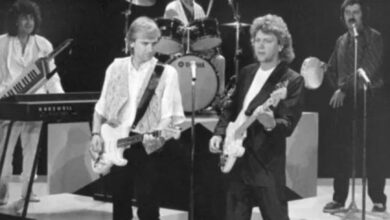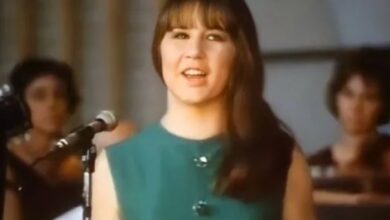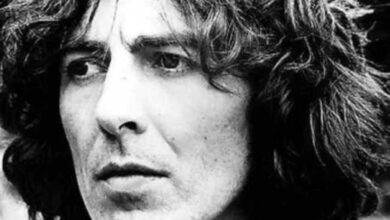Bee Gees’ “Massachusetts” Reclaims British Pop’s Soul and Tops Global Charts in 1967
When the Bee Gees released “Massachusetts” in September 1967, it marked a defining moment not only for the group but also for the broader landscape of popular music. The song, melancholic yet instantly memorable, soared to number one in the UK, Australia, and several other countries, and cracked the Top 20 in the United States. It was their first major international hit, the track that catapulted them from promising newcomers to household names, and it helped shift the global pop narrative back toward Britain at a time when American psychedelia was dominating airwaves.
The trio behind the song—Barry, Robin, and Maurice Gibb—had spent their early years performing in Australia before returning to the UK in 1967 with hopes of achieving stardom. Born on the Isle of Man and raised in Manchester, the brothers had developed a uniquely tight harmonic blend shaped by years of singing together. What set them apart from their contemporaries wasn’t just their vocal precision—it was their instinct for drama and emotional truth, which shone through in their earliest material. With “Massachusetts,” they found a perfect match between storytelling and songcraft.
“Massachusetts” was written while the Bee Gees were staying in a modest New York hotel during their 1967 U.S. tour. The inspiration, paradoxically, came not from fond memories of America, but from a desire to comment on the social alienation many felt amid the swirling chaos of the counterculture movement. “The lights all went out in Massachusetts,” Robin sang with mournful clarity, capturing the weariness of someone returning home from the hippie dream disillusioned. The title itself, plucked from the name of a state they’d never visited, carried a mysterious weight—symbolic, almost ghostly.
The recording of the song took place at IBC Studios in London, with Robert Stigwood producing. The arrangement was simple but elegant: a delicate acoustic guitar intro, lush string accompaniment, and the brothers’ signature harmonies. Robin’s lead vocal gave the track its haunting tone, while Barry and Maurice layered subtle harmonics that floated behind the melody like a distant echo. The restrained instrumentation was deliberate, a stark contrast to the swirling, effects-laden music of the era, allowing the melancholy lyrics to shine without distraction.
“Massachusetts” was an immediate commercial triumph. It spent four weeks at number one on the UK Singles Chart and reached number one in at least twelve other countries. In the U.S., it climbed to number 11 on the Billboard Hot 100. It became the first song by a non-American act to mention an American state and reach such global acclaim, proving the Bee Gees could connect emotionally across cultural lines. The song also won the coveted Ivor Novello Award for Best-Selling British Single of 1967, a recognition of both its popularity and craftsmanship.
More than just a hit, “Massachusetts” became a cultural moment. At a time when British pop music was being overshadowed by the West Coast sound of California, the Bee Gees reminded listeners of the British Invasion’s enduring emotional intelligence. The song’s somber tone felt like an elegy for a more innocent time, resonating with audiences who were growing weary of the Summer of Love’s idealism. It was introspective, poetic, and emotionally mature—qualities that helped set the Bee Gees apart from their more exuberant peers.
The success of “Massachusetts” dramatically elevated the Bee Gees’ status. They were no longer simply riding the wave of Beatlemania—they were carving out their own lane. With this newfound acclaim, the band gained access to bigger venues, international television appearances, and the opportunity to work with elite producers and arrangers. It also laid the foundation for their increasingly ambitious albums throughout the late 1960s and early 1970s, including Idea and Odessa.
Musically, the song helped inspire a wave of balladry within British pop, encouraging other acts to explore themes of melancholy, loss, and introspection. The idea that a pop song could be simultaneously simple and profound found new life in “Massachusetts.” Artists like The Hollies, The Moody Blues, and even The Beatles would embrace similarly wistful tones in subsequent releases. The song also paved the way for the Bee Gees’ own evolution into baroque pop architects.
In later years, “Massachusetts” would be covered by a range of artists, including The Seekers and the Czech rock band Olympic. Each rendition honored the gentle sadness of the original, proving its universal emotional appeal. None, however, matched the sheer sincerity of Robin Gibb’s voice or the harmonic chemistry of the Gibb brothers—elements that made the original so unforgettable.
During the time of the song’s release, the Bee Gees were enjoying their first taste of real stardom in their homeland after years of striving abroad. The success also coincided with the strengthening of their partnership with manager Robert Stigwood, whose belief in their potential was instrumental in launching their global career. “Massachusetts” marked the moment their dreams of worldwide acclaim began to solidify into reality.
Even decades later, “Massachusetts” maintains a revered place in classic pop canon. It remains one of the Bee Gees’ most-played songs on oldies radio and is frequently cited by critics as one of their finest early works. It also continues to appear on best-of compilations, testament to its enduring charm and emotional resonance.
From a broader musical standpoint, the track helped to cement the notion that pop could be a vehicle for solemn storytelling, not just escapism. It subtly reshaped audience expectations, proving that introspection had a place in the mainstream. This shift would influence the emerging singer-songwriter genre in the 1970s, setting the stage for artists like James Taylor and Cat Stevens.
Robin Gibb, who passed away in 2012, often cited “Massachusetts” as one of his proudest achievements. In the years following his death, the song has been featured in tribute concerts and memorials, a gentle reminder of his distinct vocal presence and the Bee Gees’ early brilliance. It stands not just as a hit, but as a legacy piece.
In the end, “Massachusetts” endures because it captured something timeless—the ache of disconnection, the quiet pull of home, the realization that dreams don’t always deliver what they promise. These themes remain as relevant now as they were in 1967. With its subtle instrumentation and soaring harmonies, the song transcends its era, standing as one of the most poignant ballads of its time and a pillar in the towering legacy of the Bee Gees.





